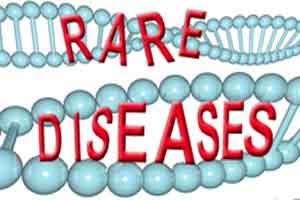- Home
- Medical news & Guidelines
- Anesthesiology
- Cardiology and CTVS
- Critical Care
- Dentistry
- Dermatology
- Diabetes and Endocrinology
- ENT
- Gastroenterology
- Medicine
- Nephrology
- Neurology
- Obstretics-Gynaecology
- Oncology
- Ophthalmology
- Orthopaedics
- Pediatrics-Neonatology
- Psychiatry
- Pulmonology
- Radiology
- Surgery
- Urology
- Laboratory Medicine
- Diet
- Nursing
- Paramedical
- Physiotherapy
- Health news
- Fact Check
- Bone Health Fact Check
- Brain Health Fact Check
- Cancer Related Fact Check
- Child Care Fact Check
- Dental and oral health fact check
- Diabetes and metabolic health fact check
- Diet and Nutrition Fact Check
- Eye and ENT Care Fact Check
- Fitness fact check
- Gut health fact check
- Heart health fact check
- Kidney health fact check
- Medical education fact check
- Men's health fact check
- Respiratory fact check
- Skin and hair care fact check
- Vaccine and Immunization fact check
- Women's health fact check
- AYUSH
- State News
- Andaman and Nicobar Islands
- Andhra Pradesh
- Arunachal Pradesh
- Assam
- Bihar
- Chandigarh
- Chattisgarh
- Dadra and Nagar Haveli
- Daman and Diu
- Delhi
- Goa
- Gujarat
- Haryana
- Himachal Pradesh
- Jammu & Kashmir
- Jharkhand
- Karnataka
- Kerala
- Ladakh
- Lakshadweep
- Madhya Pradesh
- Maharashtra
- Manipur
- Meghalaya
- Mizoram
- Nagaland
- Odisha
- Puducherry
- Punjab
- Rajasthan
- Sikkim
- Tamil Nadu
- Telangana
- Tripura
- Uttar Pradesh
- Uttrakhand
- West Bengal
- Medical Education
- Industry
Rare Diseases: Supreme court seeks response of Centre, 34 states, UTs

New Delhi: The Supreme Court Monday sought responses from the Centre and 34 states and union territories (UTs), except Delhi and Jharkhand, on a plea seeking setting up of state-level committees to ensure proper treatment of patients suffering from rare diseases.
The National Policy for Treatment of Rare Diseases (2017) provides that every state and UT will have to set up the technical-cum-administrative committee to ensure diagnosis and proper treatment of rare diseases and so far only Delhi and Jharkhand have constituted such panels, the plea said.
"A rare disease is a health condition of low prevalence that affects a small number of people compared with other prevalent diseases in the general population. It includes diseases such as rare cancers, infectious tropical diseases and degenerative diseases, among others and since 80 per cent of these diseases are genetic in origin, therefore, it disproportionately impacts children," the plea said.
"Issue notice," said a bench comprising Chief Justice Ranjan Gogoi and Justice Sanjeev Khanna while taking note of the PIL filed by Banglore-based 'Organization for Rare Diseases India'.
The organisation, in its plea filed through lawyer Ashok Agarwal, said that as per the policy, the states are needed to identify designated hospitals for treatment of these rare diseases and to provide supportive care to patients.
The petition said the failure of states and union territories in constituting administrative committees and identifying hospitals for treatment of rare diseases was "arbitrary, discriminatory, unjust and violative" of the fundamental right to health of hundreds of rare disease patients.
"Because the rare disease patients need urgent attention and delay in treatment thereof could be fatal therefore respondents are obliged to constitute State Level Technical-cum Administrative Committee and identifying hospitals and addressing them for medical purpose of rare disease patients in terms of National Policy for Treatment of Rare Diseases," the plea said.
Read Also: Patient groups concerned over 'delay' in rare diseases treatment policy implementation
It also said that these rare diseases often have a catastrophic impact on families, both emotionally as well as financially due to the "prohibitively high cost of treatment".
It said that a similar plea was filed in the Delhi High Court seeking a direction to the government to provide free treatment of such diseases as the expenses incurred in treatment were not being covered by insurance firms.
The high court had then directed the Ministry of Health and Family Welfare to frame a "national policy on treatment of rare diseases", which was finally approved by the Centre on May 25, 2017, it said, adding that sadly, it has not been acted upon by 34 states and UTs.
Medical Dialogues Bureau consists of a team of passionate medical/scientific writers, led by doctors and healthcare researchers. Our team efforts to bring you updated and timely news about the important happenings of the medical and healthcare sector. Our editorial team can be reached at editorial@medicaldialogues.in.


